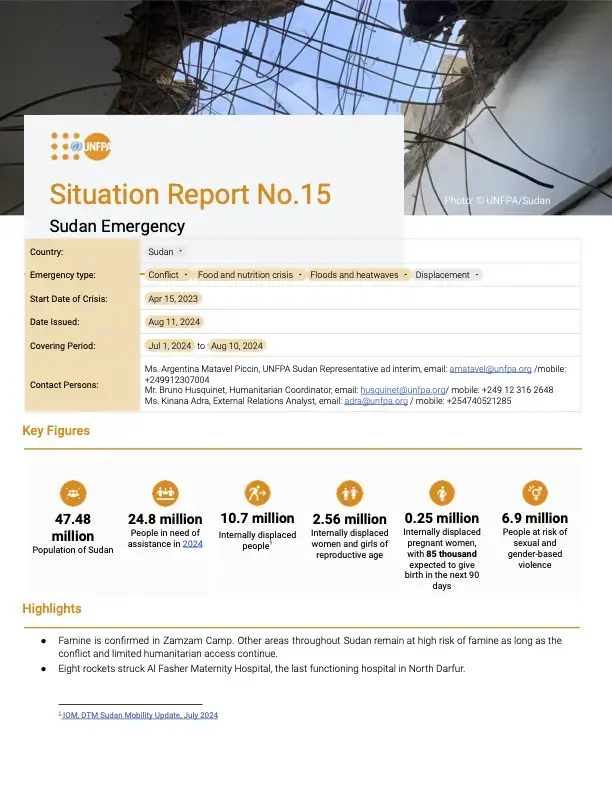The world’s most pressing humanitarian catastrophe is growing and deepening every day. Around 10.7 million people are now displaced in Sudan, including an estimated 255,000 pregnant women. Fighting continues to drive displacement across the country – more than 725,000 people were displaced in Sennar State between June and July 2024, while the number of displaced people in West Kordofan rose to 356,900.
About 25.6 million people – more than half of Sudan's population – are facing acute hunger, including more than 611,000 pregnant women. The latest IPC analysis has confirmed famine in Zamzam Camp near the state capital, of El Fasher, North Darfur, and similar conditions may be affecting other IDP sites in the area, including Abu Shouk and Al Salam camps.
Worsening floods continue to fuel misery across the country. Around 10,700 people in eastern Kassala province have been impacted by severe floods, including many families who recently arrived after fleeing violence in Sennar state. In war-torn Darfur region, flooding is severely hindering the ability of aid agencies to reach those in need, exacerbating an already catastrophic humanitarian situation. There are reports of latrines and water points being flooded, increasing the risks of waterborne diseases at a time when people are already dying from hunger and illness and the health system is on the verge of collapse.
Attacks on El Fasher Saudi Hospital have severely reduced its operational capacity and caused extensive infrastructure damage, including to the maternity ward. UNFPA continues to provide health facilities and partners with reproductive health medicines and supplies, including for emergency obstetric care and the clinical management of rape. UNFPA is also deploying roving teams of midwives and medical staff to emergency obstetric care facilities, investing in sustainable clean energy solutions, and preposition reproductive health supplies at the border in Chad. Mobile clinics are being deployed in areas of high need where access to health and protection services is limited. UNFPA continues to strengthen the capacity of local community structures and health care providers.
In 2024, UNFPA Sudan is appealing for $82 million to respond to reproductive health and gender- based violence needs across the country. To date the appeal is only 33 percent funded, leaving a funding gap of $55 million.


